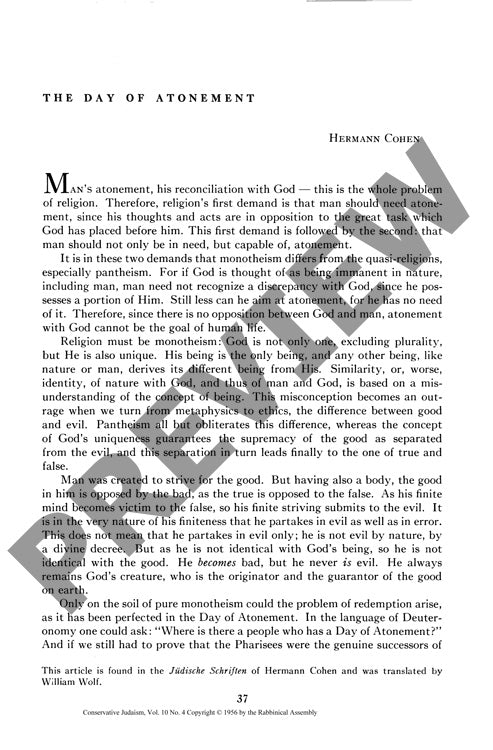The Day of Atonement
Couldn't load pickup availability
The Day of Atonement stands as monotheism's defining response to humanity's fundamental moral predicament: how can finite beings, inevitably participating in evil and error, reconcile with an infinite, perfect God? Hermann Cohen's philosophical analysis reveals that monotheism's core premise—God's absolute uniqueness and separation from creation—necessitates human atonement in ways that pantheistic traditions do not. Through comparative religious analysis and examination of divine-human relationships, Cohen demonstrates that atonement constitutes redemption from sinfulness rather than from human finitude itself, demanding a collaborative process between divine mercy and human moral effort through repentance. The Day of Atonement emerges as both symbolic mirror and practical model for lifelong spiritual striving, exemplifying Judaism's absolute monotheism. In this integrated theological system, judgment, atonement, and redemption work together to address humanity's moral contradictions while maintaining the essential distinction between divine and human nature. This theological framework positions the Day of Atonement as monotheism's distinctive contribution to religious thought, marking it as the culmination of monotheistic religious consciousness.

More Information
-
Physical Description
-
Publication Information
Published 1956
ISBN
-
Publication Credits
Hermann Cohen

